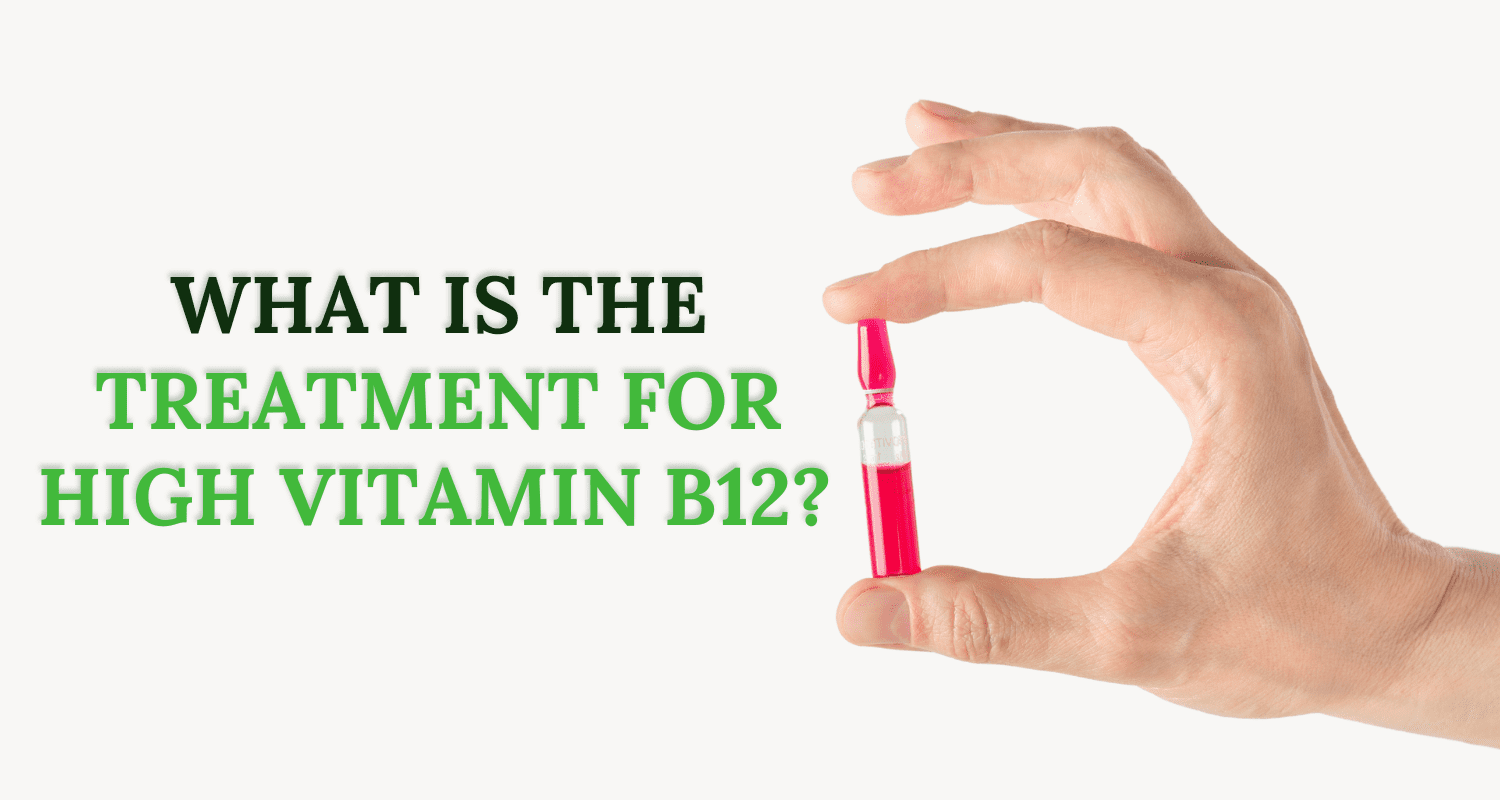Did you know that vitamin B12 deficiency affects up to 12.5% of the population worldwide?
This surprising statistic raises an important question: can vitamin B12 deficiency be a sign of cancer?
In this article, we will explore the potential link between vitamin B12 deficiency and cancer, examining whether B12 deficiency can serve as an indicator of an underlying malignancy.
Understanding this connection is crucial for early detection and prompt treatment, so let’s dive into the fascinating relationship between vitamin B12 deficiency and cancer.
Let’s explore: can vitamin b12 deficiency be a sign of cancer?
Key Takeaways:
- Vitamin B12 deficiency affects a significant portion of the global population.
- Can vitamin b12 deficiency be a sign of cancer? Understand the potential link between vitamin B12 deficiency and cancer.
- Recognizing the symptoms of both B12 vitamin deficiency and cancer is vital for early detection and diagnosis.
- Treatment options are available for both vitamin B12 deficiency and cancer, emphasizing the importance of healthcare interventions.
- Adopting a healthy lifestyle and preventive measures can help reduce the risk of both conditions.
Understanding Vitamin B12 Deficiency
Vitamin B12 deficiency is a condition that occurs when the body does not have enough B12, a vital nutrient essential for various bodily functions.
This deficiency can have a significant impact on overall health and well-being.
Understanding the causes, symptoms, and effects of B12 deficiency is crucial in order to identify and address it promptly.
Common Causes of Vitamin B12 Deficiency:
- Insufficient dietary intake: A lack of animal-based foods like meat, dairy products, and eggs, which are primary sources of B12, can lead to deficiency.
- Malabsorption issues: Certain conditions like pernicious anemia, gastrointestinal disorders, or surgeries affecting the digestive system can interfere with B12 absorption.
- Medication or medical treatments: Prolonged use of certain medications or medical treatments such as gastric bypass surgery may impact B12 absorption.
Recognizing the Symptoms and Effects:
Vitamin B12 deficiency can manifest in various ways, affecting multiple systems within the body.
Common symptoms include:
- Fatigue and weakness
- Dizziness or lightheadedness
- Shortness of breath
- Pale or yellowish skin
- Tingling or numbness in the hands and feet
- Poor memory and cognitive function
- Mood changes or depression
The effects of vitamin B12 deficiency can be far-reaching, impacting physical, mental, and neurological health.
When left untreated, it can lead to anemia, nerve damage, and other complications.
By understanding the causes, symptoms, and effects of vitamin B12 deficiency, individuals can identify potential deficiencies and take appropriate measures to address them.
In the next section, we will explore the warning signs of cancer and examine how they may or may not overlap with the vitamin b12 deficiency symptoms cancer.
Exploring the Warning Signs of Cancer
Can vitamin b12 deficiency be a sign of cancer? To understand this question first understand When it comes to detecting cancer, understanding the warning signs and symptoms is crucial.
While vitamin B12 deficiency and cancer can share certain symptoms, it’s important to recognize the distinguishing indicators.
By being aware of these signs, individuals can take prompt action and seek appropriate medical attention.
1. Unexplained weight loss: Losing a significant amount of weight without any intentional effort or changes in diet and exercise habits may be a potential sign of cancer.
2. Fatigue and weakness: Persistent fatigue and weakness that do not improve with rest can be an indication of an underlying malignancy.
3. Pain: Ongoing pain in a specific area or region, especially if it worsens over time, can be a symptom of cancer.
4. Changes in the skin: Noticeable changes in the skin, such as darkened areas, yellowing, redness, or excessive hair growth, may be associated with certain types of cancer.
5. Unusual bleeding or discharge: Unexplained bleeding, particularly from the rectum, vagina, or during coughing, and abnormal discharge from the nipples or genitals can be warning signs of cancer.
6. Changes in bowel or bladder habits: Persistent changes in bowel movements, such as diarrhea, constipation, or changes in urine frequency or appearance, should be examined for potential underlying causes, including cancer.
7. Difficulty swallowing or persistent indigestion: Difficulty swallowing or ongoing indigestion that does not respond to traditional treatment methods may require further investigation to rule out any gastrointestinal cancers.
While these symptoms can be concerning, it’s important to note that they can also be caused by various other health conditions.
Always consult a healthcare professional for a proper diagnosis and evaluation.
Potential Connection Between B12 Deficiency and Cancer
In this section, we will explore: can vitamin B12 deficiency be a sign of cancer?
Recent scientific studies and research have shown intriguing findings that suggest possible cancer indicators in b12 deficiency.
While more research is needed to establish a definitive cause-and-effect relationship, the existing evidence has generated interest in further investigation.
A study published in the International Journal of Cancer found that individuals with low levels of vitamin B12 may have an increased risk of certain cancers, such as colorectal cancer.
Similarly, another study in the Journal of Clinical Oncology revealed that vitamin B12 deficiency is prevalent in cancer patients, especially those undergoing chemotherapy.
It is believed that vitamin B12 plays a vital role in DNA synthesis and cell division, which are essential processes in maintaining normal cell function and preventing the development of cancer cells.
B12 deficiency may impair these processes, leading to an increased risk of malignancy.
While the exact mechanisms behind the potential connection between B12 deficiency and cancer are not yet fully understood, it is important to highlight that B12 deficiency should not be considered a direct indicator of cancer.
However, it can serve as a possible warning sign, prompting further investigation and medical attention.
Further research is necessary to establish a definitive link between B12 deficiency and cancer.
Scientists are conducting ongoing studies to determine whether B12 supplementation can play a role in preventing or managing certain types of cancers.
These studies aim to shed more light on the relationship between B12 deficiency and malignancy.
Importance of Early Detection and Diagnosis
In the realm of healthcare, early detection and diagnosis play a pivotal role in managing various health conditions, including cancer and vitamin B12 deficiency.
Early detection of cancer is crucial as it can significantly impact treatment outcomes and increase the chances of successful recovery.
Regular health check-ups and cancer screening tests enable healthcare professionals to identify potential concerns at an early stage, facilitating timely intervention and appropriate treatment.
It is important to note that early detection of cancer does not guarantee prevention, but it can enhance treatment options and improve prognoses.
Similarly, early diagnosis of vitamin B12 deficiency allows for prompt intervention and management.
Recognizing the signs and symptoms of B12 deficiency and seeking medical attention can lead to timely treatment, preventing further complications.
To ensure early detection and diagnosis, individuals should prioritize professional medical consultations and adhere to recommended screening guidelines.
By working closely with healthcare providers, individuals can identify potential health issues early on and take necessary steps for intervention and treatment.
Treating Vitamin B12 Deficiency and Cancer
In this section, we will explore the various treatment options available for both vitamin B12 deficiency and cancer.
It is important to address and manage these conditions effectively to improve overall health and well-being.
Treating Vitamin B12 Deficiency
When it comes to treating vitamin B12 deficiency, dietary changes and supplementation are the primary approaches. Incorporating foods rich in vitamin B12, such as meat, fish, dairy products, and fortified cereals, can help replenish B12 levels.
For individuals with severe deficiency or conditions hindering absorption, vitamin B12 injections or oral supplements may be recommended.
- Include foods rich in vitamin B12 in your diet:
- Meat: Beef, chicken, lamb
- Fish: Salmon, trout, tuna
- Dairy products: Milk, cheese, yogurt
- Consider vitamin B12 supplementation:
- Oral supplements: Tablets or capsules
- Vitamin B12 injections: Administered by healthcare professionals
Treating Cancer
When it comes to treating cancer, the approach varies based on the type and stage of cancer.
The treatment options may include surgery, radiation therapy, chemotherapy, targeted therapy, immunotherapy, or a combination of these.
The goal of cancer treatment is to eliminate or control the cancer cells, prevent metastasis, and improve the patient’s quality of life.
- Surgery: Removal of cancerous tumors or tissues
- Radiation therapy: Use of high-energy radiation to destroy cancer cells
- Chemotherapy: Administration of drugs to kill cancer cells throughout the body
- Targeted therapy: Use of drugs targeting specific molecules in cancer cells
- Immunotherapy: Activation of the immune system to fight against cancer cells
In some cases, complementary therapies such as acupuncture, massage, or herbal remedies may be used to alleviate symptoms and support the overall well-being of cancer patients.
It is essential to work closely with healthcare professionals to determine the most suitable treatment options based on individual circumstances and medical advice.
Prevention and Lifestyle Choices
When it comes to reducing the risk of both vitamin B12 deficiency and cancer, making healthy lifestyle choices is crucial.
By incorporating preventive measures into your daily routine, you can take proactive steps towards maintaining overall good health.
Here are some key strategies to consider:
- Eat a balanced diet: Consuming a variety of nutrient-rich foods can help promote optimal health and prevent deficiencies. Include plenty of fruits, vegetables, whole grains, lean proteins, and dairy products in your diet.
- Exercise regularly: Engaging in regular physical activity not only improves fitness levels but also supports a healthy immune system and reduces the risk of certain types of cancer.
- Maintain a healthy weight: Obesity has been linked to an increased risk of various cancers. By maintaining a healthy weight through proper diet and exercise, you can lower your risk.
- Avoid tobacco and limit alcohol: Smoking and excessive alcohol consumption are major risk factors for cancer. Quitting smoking and limiting alcohol intake can significantly reduce your risk.
- Protect yourself from the sun: Exposure to harmful UV rays can increase the risk of skin cancer. Use sunscreen, seek shade, and wear protective clothing when outdoors.
- Get vaccinated: Some types of cancer, such as cervical and liver cancer, can be prevented through vaccination. Speak to your healthcare provider about recommended vaccines.
- Practice safe sex: Certain sexually transmitted infections, such as human papillomavirus (HPV), can increase the risk of cervical, anal, and other types of cancers. Safe sex practices and regular screenings can help reduce this risk.
- Stay up to date with screenings: Regular screenings and early detection play a vital role in preventing and treating cancer. Follow recommended guidelines for screenings based on your age, gender, and health history.
By adopting these preventive measures and making conscientious lifestyle choices, you can decrease the likelihood of both vitamin B12 deficiency and cancer.
Remember, prevention is key in maintaining overall well-being, so prioritize your health and make informed decisions for a healthier future.
Conclusion
After exploring the potential link between vitamin B12 deficiency and cancer for the most burning question: can vitamin b12 deficiency be a sign of cancer, we can draw some important conclusions.
While there is ongoing research in this area, it is important to note that vitamin B12 deficiency alone is not a definitive sign of cancer.
However, studies have suggested that there may be a connection between the two conditions.
It is crucial to be aware of the warning signs and symptoms of both vitamin B12 deficiency and cancer.
Although some symptoms may overlap, it is always recommended to consult a healthcare professional for proper diagnosis and treatment.
Early detection plays a vital role in managing both these health concerns effectively.
Treatment for vitamin B12 deficiency typically involves dietary changes and supplementation to ensure adequate levels of this essential nutrient.
On the other hand, cancer treatment methods vary depending on the type and stage of the disease.
Medical professionals usually employ a combination of therapies such as surgery, chemotherapy, radiation, and targeted therapies.
To promote overall well-being and reduce the risk of vitamin B12 deficiency and cancer, maintaining a healthy lifestyle is crucial.
This includes consuming a balanced diet rich in B12 sources, engaging in regular physical activity, and avoiding tobacco and excessive alcohol consumption.
FAQs
Can vitamin B12 deficiency be a sign of cancer?
While vitamin B12 deficiency can occur for various reasons, it is not typically considered a direct sign of cancer. However, some cancers may affect B12 absorption or utilization.
Is low B12 linked to cancer?
Low B12 levels can sometimes be associated with certain types of cancer, but it’s not a direct causal link. Other factors may contribute to both B12 deficiency and cancer risk.
What are the two main causes of B12 deficiency?
The two primary causes of B12 deficiency are inadequate dietary intake, particularly in vegetarians and vegans, and impaired absorption, often due to conditions affecting the stomach or intestines.
What are the stages of B12 deficiency cancer?
B12 deficiency itself does not have specific stages related to cancer. However, cancer treatment or complications from cancer can sometimes lead to B12 deficiency.
What are the warning signs of vitamin B12 deficiency?
Common warning signs of vitamin B12 deficiency include fatigue, weakness, pale or jaundiced skin, tingling or numbness in the hands and feet, difficulty walking, and memory problems.
Should I be worried if my B12 is low?
If you have low B12 levels, it’s essential to consult with a healthcare professional to determine the underlying cause and appropriate treatment. While it can be concerning, many cases are manageable with proper intervention.
Should I worry about vitamin B12 deficiency?
While it’s essential to address vitamin B12 deficiency promptly, excessive worry isn’t productive. Consultation with a healthcare provider can help address concerns and develop a suitable treatment plan.
Disclaimer: This content, including advice, provides generic information only. It is not a substitute for a qualified medical opinion. Always consult a specialist or your doctor for more information. Nutrition Cult does not claim responsibility for this information.




